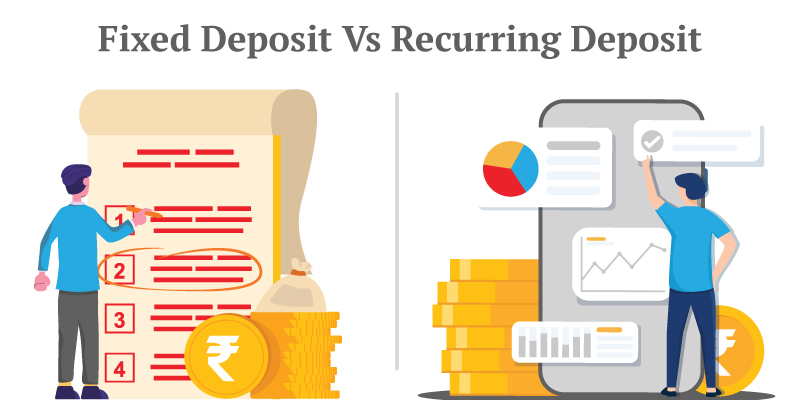
When it comes to saving money and ensuring financial stability, Fixed Deposits (FD) and Recurring Deposits (RD) are two popular options offered by banks in India. Both FD and RD offer guaranteed returns and are considered safer investment avenues compared to riskier options like stocks or mutual funds. However, each serves a different purpose based on your financial goals and saving habits. Let's delve into the details to help you decide which suits you best.
Fixed Deposits are a traditional savings option where you deposit a lump sum amount with a bank for a fixed period, ranging from a few months to several years. Here’s why FDs are favored by many:
Recurring Deposits are designed for investors who want to save regularly without the pressure of a large initial investment. Here’s why RDs might be the right choice for you:
To decide whether an FD or an RD is more suitable for you, consider the following factors:
Both Fixed Deposits (FD) and Recurring Deposits (RD) have their own merits depending on your financial situation and goals. While FDs offer flexibility in terms of deposit amount and tenure, RDs encourage regular saving habits. Understanding your financial goals and risk tolerance will help you make an informed decision.
Whether you choose an FD or an RD, remember to use tools like the FD Calculator and RD Calculator to estimate potential returns and plan accordingly. Investing in either can help you secure your financial future with guaranteed returns and peace of mind.

When it comes to financial health, your credit score is like a report card that lenders, banks, and ...

Paying taxes is inevitable-but overpaying is not. With smart tax planning, you can maximize your sav...

Achieving financial freedom is not a set-it-and-forget-it process. To ensure your financial plans st...